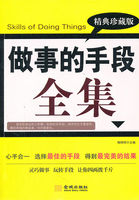'A man full of talk.'--Zophar.
'Let thy words be few.'--The Preacher.
'The soul of religion is the practick part.'--Christian.
Since we all have a tongue, and since so much of our time is taken up with talk, a simple catalogue of the sins of the tongue is enough to terrify us. The sins of the tongue take up a much larger space in the Bible than we would believe till we have begun to suffer from other men's tongues and especially from our own. The Bible speaks a great deal more and a great deal plainer about the sins of the tongue than any of our pulpits dare to do. In the Psalms alone you would think that the psalmists scarcely suffer from anything else worth speaking about but the evil tongues of their friends and of their enemies. The Book of Proverbs also is full of the same lashing scourge. And James the Just, in a passage of terrible truth and power, tells us that we are already as good as perfect men if we can bridle our tongue; and that, on the other hand, if we do not bridle our tongue, all our seeming to be religious is a sham and a self-deception,--that man's religion is vain.
With many men and many women great talkativeness is a matter of simple temperament and mental constitution. And a talkative habit would be a childlike and an innocent habit if the heart of talker and the hearts of those to whom he talks so much were only full of truth and love. But our hearts and our neighbours' hearts being what they are, in the multitude of words there wanteth not sin. So much of our talk is about our absent neighbours, and there are so many misunderstandings, prejudices, ambitions, competitions, oppositions, and all kinds of cross-interests between us and our absent neighbours, that we cannot long talk about them till our hearts have run our tongues into all manner of trespass. Bishop Butler discourses on the great dangers that beset a talkative temperament with almost more than all his usual sagacity, seriousness, and depth. And those who care to see how the greatest of our modern moralists deals with their besetting sin should lose no time in possessing and mastering Butler's great discourse. It is a truly golden discourse, and it ought to be read at least once a month by all the men and all the women who have tongues in their heads. Bishop Butler points out to his offending readers, in a way they can never forget, the certain mischief they do to themselves and to other people just by talking too much. But there are far worse sins that our tongues fall into than the bad enough sins that spring out of impertinent and unrestrained loquacity. There are many times when our talk, long or short, is already simple and downright evil. It is ten to one, it is a hundred to one, that you do not know and would not believe how much you fall every day and in every conversation into one or other of the sins of the tongue.
If you would only begin to see and accept this, that every time you speak or hear about your absent neighbour what you would not like him to speak or hear about you, you are in that a talebearer, a slanderer, a backbiter, or a liar,--when you begin to see and admit that about yourself, you will not wonder at what the Bible says with such bitter indignation about the diabolical sins of the tongue. If you would just begin to-night to watch yourselves--on the way home from church, at home after the day is over, to-morrow morning when the letters and the papers are opened, and so on,--how instinctively, incessantly, irrepressibly you speak about the absent in a way you would be astounded and horrified to be told they were at that moment speaking about you, then you would soon be wiser than all your teachers in the sins and in the government of the tongue. And you would seven times every day pluck out your tongue before God till He gives it back to you clean and kind in that land where all men shall love their neighbours, present and absent, as themselves.
Take detraction for an example, one of the commonest, and, surely, one of the most detestable of the sins of the tongue. And the etymology here, as in this whole region, is most instructive and most impressive. In detraction you DRAW AWAY something from your neighbour that is most precious and most dear to him. In detraction you are a thief, and a thief of the falsest and wickedest kind. For your neighbour's purse is trash, while his good name is far more precious to him than all his gold. Some one praises your neighbour in your hearing, his talents, his performances, his character, his motives, or something else that belongs to your neighbour. Some one does that in your hearing who either does not know you, or who wishes to torture and expose you, and you fall straight into the snare thus set for you, and begin at once to belittle, depreciate, detract from, and run down your neighbour, who has been too much praised for your peace of mind and your self-control. You insinuate something to his disadvantage and dishonour. You quote some authority you have heard to his hurt.
And so on past all our power to picture you. For detraction has a thousand devices taught to it by the master of all such devices, wherewith to drag down and defile the great and the good. But with all you can say or do, you cannot for many days get out of your mind the heart-poisoning praise you heard spoken of your envied neighbour. Never praise any potter's pots in the hearing of another potter, said the author of the Nicomachean Ethics.
Aristotle said potter's pots, but he really all the time was thinking of a philosopher's books; only he said potter's pots to draw off his readers' attention from himself. Now, always remember that ancient and wise advice. Take care how you praise a potter's pots, a philosopher's books, a woman's beauty, a speaker's speech, a preacher's sermon to another potter, philosopher, woman, speaker, or preacher; unless, indeed, you maliciously wish secretly to torture them, or publicly to expose them, or, if their sanctification is begun, to sanctify them to their most inward and spiritual sanctification.















